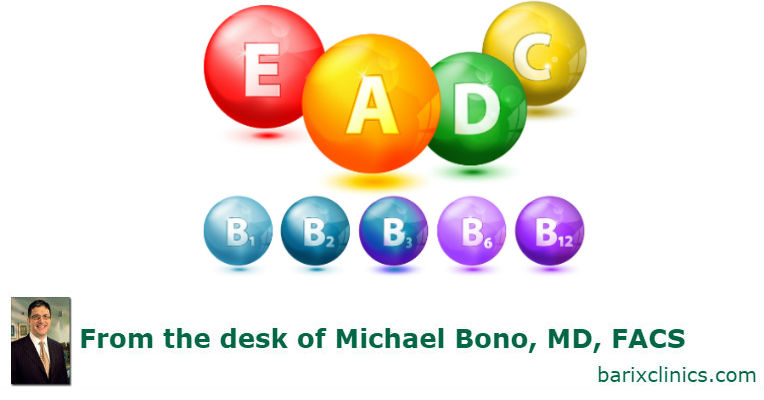Vitamins
The word “vitamin” is derived from two words “vital amine”, conceived by the Polish chemist Casimir Funk in 1912. While many researchers and scientists were integral towards the understanding of vitamins role in nutritional health, Funk isolated vitamin B1 or thiamine from rice, and determined to be the causal agent in the nutritional deficiency disease beri-beri. From there, Funk identified multiple other “vitamines” that cured many deficiency diseases, such as rickets (lack Vitamin D), pellagra (lack Vitamin B3/niacin), and scurvy (lack Vitamin C). Vitamins are described as either water-soluble (dissolve easily and readily excreted) or fat-soluble (absorbed with help from fats/lipids and stored in your bodies tissues).
Water Soluble – 9
- All B vitamins
- B1/Thiamine
- B2/Riboflavin
- B3/Niacin
- B5/Pantothenic Acid
- B6/Pyridoxine
- B7/Biotin
- B9/Folic Acid
- B12/Cyanocobalamin
- Vitamin C
Fat Soluble – 4
- Vitamin A
- Vitamin D
- Vitamin E
- Vitamin K
Water soluble vitamins need to be readily replenished, while fat soluble vitamins are stored, and can potentially increase over time to dangerous levels (hypervitaminosis), or be deficient if fat intake too low, fat absorption compromised by certain drugs (Orlistat, cholestyramine, mineral oil, laxatives) or certain disease processes (cystic fibrosis) that interfere with absorption.
From the desk of Dr. Michael Bono


